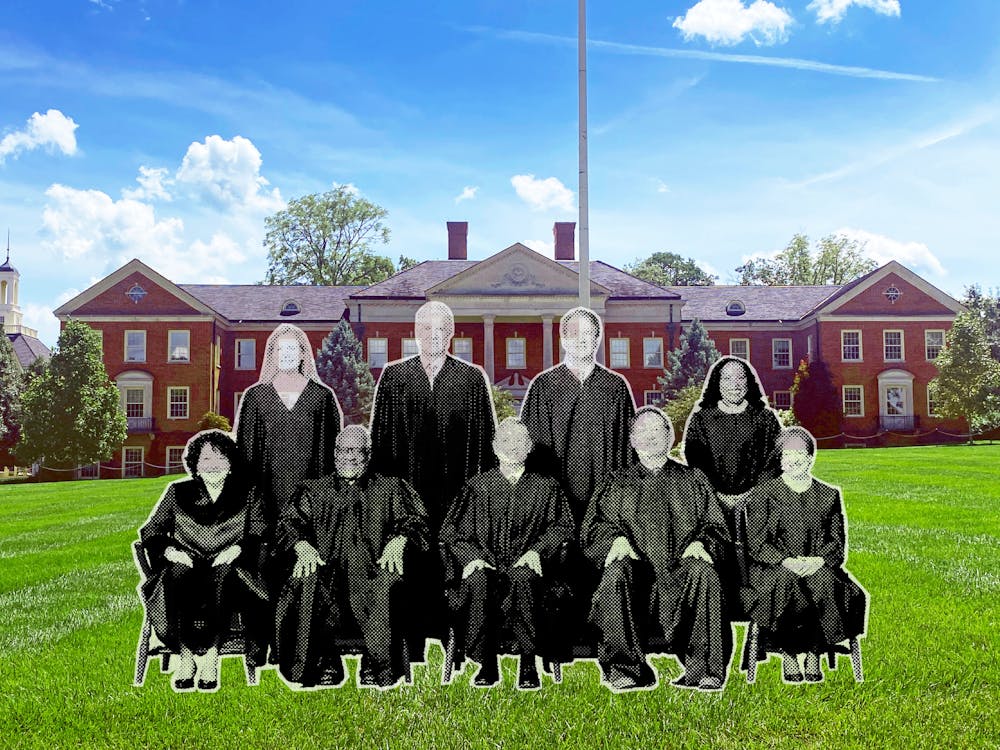It’s been nearly two months since the U.S. Supreme Court voted to overturn affirmative action, the policy allowing colleges to increase enrollment of minority students through intentional efforts. Since then, the decision has sparked many reactions across the nation, including Miami University’s students and faculty.
Aurora Ortinez, a member of Miami’s Latin American Student Organization, said the decision would likely “make college whiter,” and the decision will risk college admissions becoming more of a hurdle for minorities across the U.S.
“It’s not just academics, which is what I think most of those who support this decision are thinking about,” Ortinez said. “It’s about how, oftentimes, a student’s race plays a large part in their life experiences, which in turn, form the bulk of their inspirations for their college admission essays. With this decision, it is like they are saying that their experiences with race are meaningless.”
Some Asian American students on campus also disapproved of the decision because of hardships Asian minorities in America have faced in the past.
“This decision is a massive setback to equality,” Hanah Bloom, president of Miami’s Asian American Association, said. “Beyond just restricting minority access to higher education even more, it’s another example of the institutions that promote white supremacy in this country using Asian Americans as pawns to cause division between minorities.”
To overcome racially-motivated political decisions, Bloom said Asian Americans need to work together to have a voice in the conversation.
The loss of affirmative action impacts Black students as well as Asian Americans. In an email to The Miami Student, Ava Britford, political action chairwoman of the Black Student Action Association, wrote that affirmative action levels the unjust playing field for minorities and the decision could plague students of color even after graduation.
“Furthermore, even after black and brown individuals obtain their degrees, the perceived value of their achievements often diminishes,” Britford wrote. “Many individuals will find themselves caught between limited financial options and might choose to forgo pursuing higher education altogether due to a lack of representation and support.”
Rodney Coates, professor of critical race and ethnic studies at Miami, warned of how the Supreme Court’s decision will affect the collegiate side of the issue.
He said that admissions are down across the country because of this decision, so colleges are looking for eligible students regardless of race, gender or background to admit. Coates said colleges are becoming more dependent on student tuitions than state funding, so the admission rates will fall before they decide to accept diverse students instead of going bankrupt.
According to Miami’s Common Data set provided by the Office of Institutional Research and Effectiveness, for the fall 2021 semester, 26,571 students were admitted to Miami with 4,519 enrolling. Of that number, only 666 listed their ethnicity as not white.
Coates detailed the underlying problems surrounding the affirmative action controversy. He said it was supposed to be a stopgate solution, not a permanent one.
Enjoy what you're reading?
Signup for our newsletter
”For a long while, 75% of the American public was already not in favor of affirmative action, even though the program did not actually lower any standards for minority students to get into colleges,” Coates said.
Ejindu Ume, an economics professor at Miami University, while not available for comment, responded in a state survey for Scioto Analysis that he did not believe the decision on affirmative action would decrease diversity or disadvantage students economically.
The student organization leaders of Young Democrats and Young Republicans were not available for comment.




